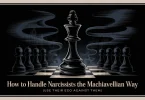Silencing the Truth: How Toxicity Persists
The Cost of Speaking Out
Calling out toxic behavior often backfires. In narcissistic systems, truthtellers are swiftly silenced with admonishments like, “If you don’t have anything nice to say, don’t say anything.” This stifles dissent, allowing abuse to perpetuate across generations. Those who persist risk being labeled as mean-spirited, facing a choice between enduring criticism or withdrawing from the system entirely.
Enablers and the Status Quo
Enablers whether family, friends, or even professionals reinforce this silence by dismissing observations as character assassination. Narcissists deflect accountability with excuses like, “I don’t have a filter,” while enablers normalize their behavior. This resistance to feedback keeps relationships stagnant, trapping individuals in unhealthy patterns.
Standards, Boundaries, and the Narcissistic Backlash
The Myth of “Too High” Standards
When survivors of narcissistic abuse set boundaries or honor red flags, they’re often accused of having standards that are “too high.” This critique whether from dating partners, family, or coworkers gaslights them to doubt their right to basic respect. Narcissists exploit this, framing reasonable expectations (e.g., honesty, empathy) as excessive, while enablers pressure conformity to maintain the status quo.
The Trauma Bond Trap
Self-doubt, a common legacy of narcissistic abuse, can lead individuals to ignore red flags or remain in toxic relationships. The fear of being alone or the belief that “this is as good as it gets” perpetuates cycles of harm. Yet, those who break free and uphold standards face shaming, underscoring the need for supportive allies who validate their worth.
Continue reading on the next page
Sharing Is Caring!





